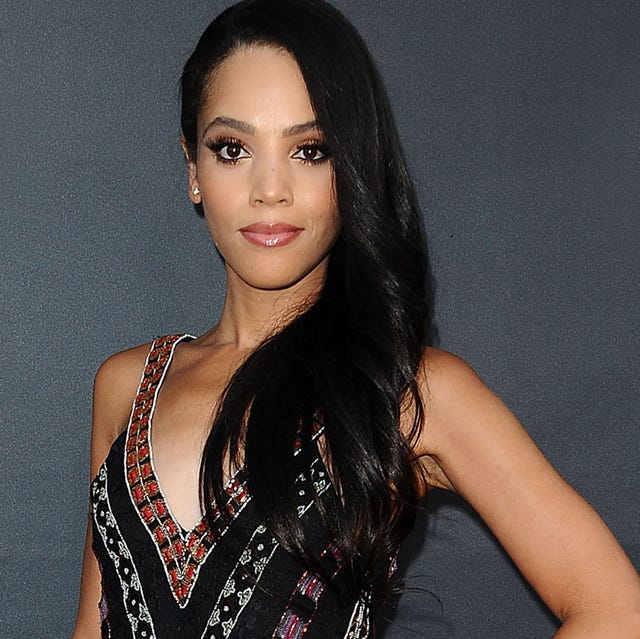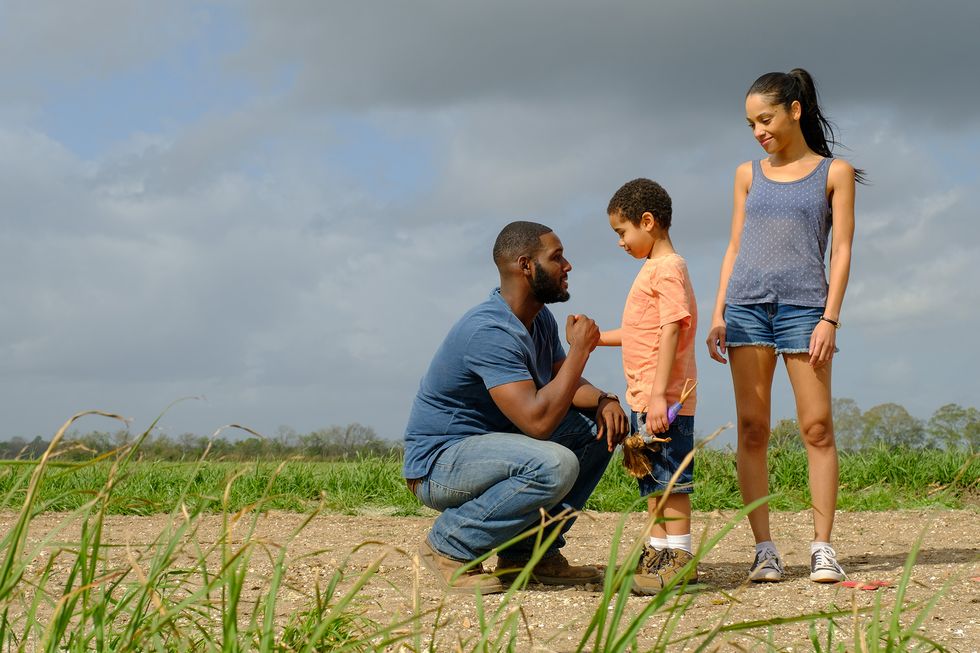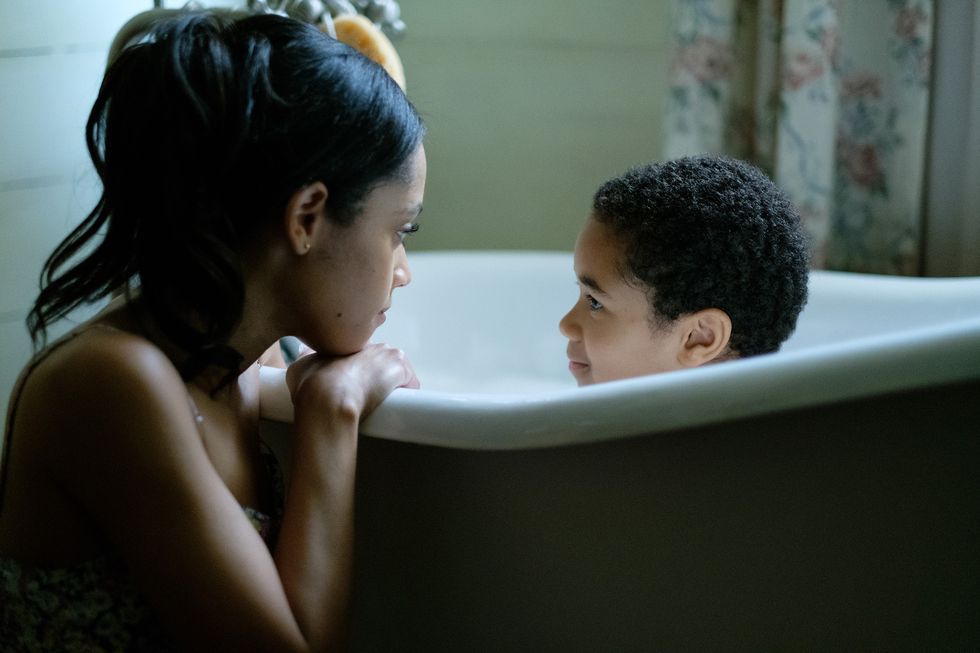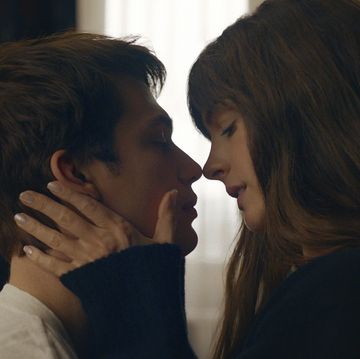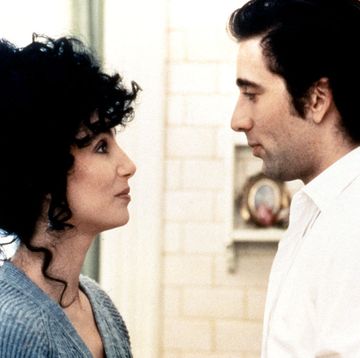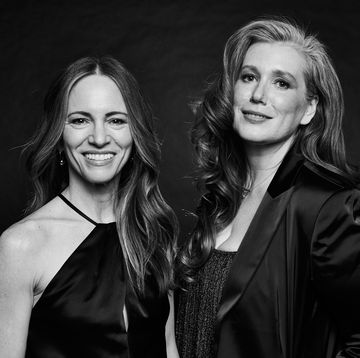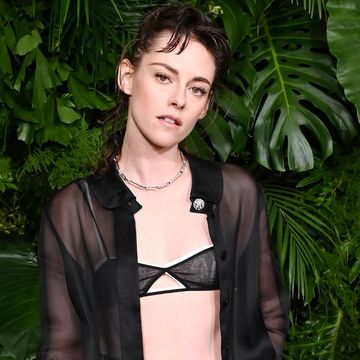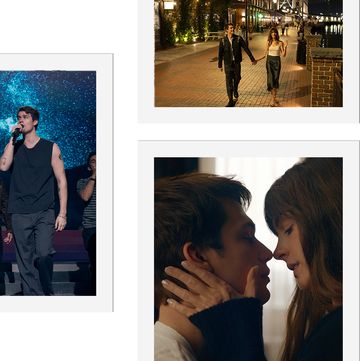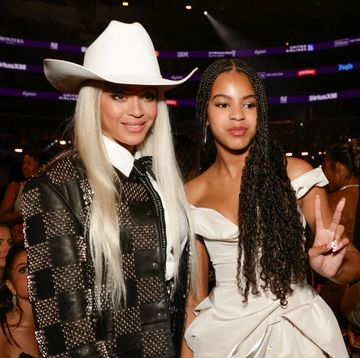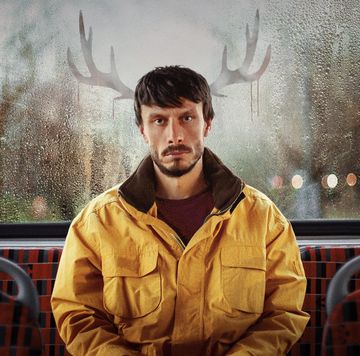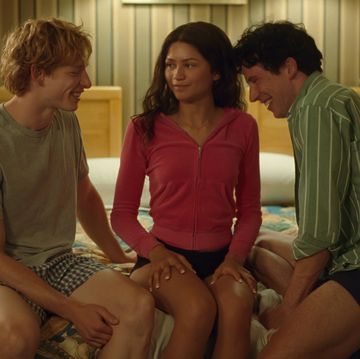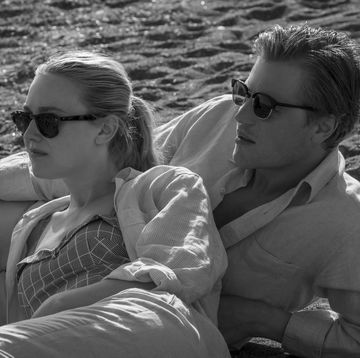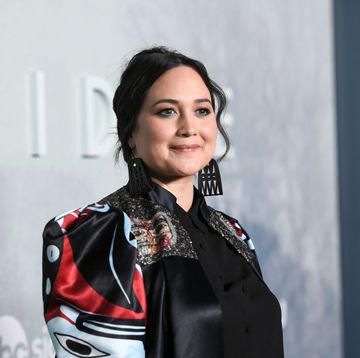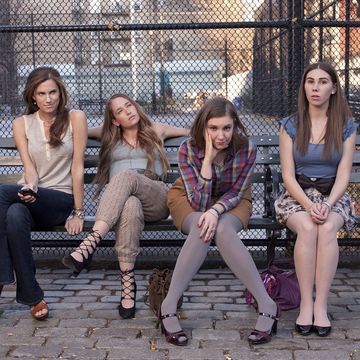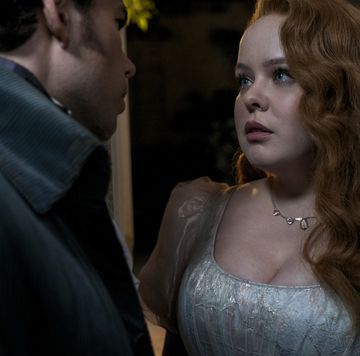It's no secret OWN's Queen Sugar—about the three Bordelon siblings (Nova, Charley, and Ralph Angel) and their battle to keep their late father's sugarcane farm aloft—features some of the most nuanced storytelling and dynamic acting on TV right now. But the Bordelons aren't the only ones commanding the screen. Bianca Lawson's Darla may not be a member of the family by name, but she's quietly dominating every one of her scenes.
The mother of Ralph Angel's son Blue and a recovering drug addict, Darla was banished from the family for much of last season, but is finally finding her place with the Bordelons in Season 2—even working as Charley's assistant at the mill. Still, she has her reservations: "There's so much shame there," Lawson says of her character's slow return to Blue and Ralph Angel's lives following last season's emotional confrontation. "She's imagining in her mind that they're picturing the most shameful memory she has." Darla's vulnerability is evident every time she's onscreen; Lawson plays the character with all the fragility of an exposed nerve while maintaining an unyielding strength. She's seen rock bottom, and she's not going back.
Below, the veteran actress (Buffy the Vampire Slayer, Pretty Little Liars, The Vampire Diaries) opens up about exploring her complicated character in Season 2, smashing the stereotype of the drug-addicted black mother, and what to expect from tonight's emotional mid-season finale.
When you got the scripts for Season 2, what excited you most about Darla's storyline?
"I was really excited about getting more of her backstory, and the fact that it was focusing on the realities of what it means to be in recovery. It wasn't like she's suddenly cured and perfect. Getting off the drugs is the first step, but then how do you exist in the world and deal with all of these relationships and past messes and the darker aspects of your life sober? Maybe other people in your life, who love you and support you, could still be hurting you because they don't understand, because they're not going through it themselves. The drugs are the symptoms of a larger problem you have to deal with now. You have to walk through that completely raw, without your usual vices and crutches. It's a whole journey, and I love that. She's almost two years sober when [the season] starts. What does that mean now?"
How do you prepare for an emotional scene?
"It's almost like every day is a new day and every scene is a new scene, so what works on one day may not work on another day. I try to get quiet, and sometimes it's about listening to music, sometimes it's about flinging myself into it and trusting whatever happens in the moment. I know there are some actors that are very cerebral, very analytical, and they break it down and know exactly all the beats they're gonna hit. I like to trust that the story is living inside me. Then the magic, the happy accidents occur in the moment that I wasn't even expecting. You might go up with the other actor and suddenly you feel an anger where you thought you were going to feel a sadness, or you feel a devastation where you thought you were going to feel happiness. I try to trust that I've been getting to know the character on my own, that I've been thinking about her and researching. It's not the scene itself; it's more the journey of it. So I do my work, and then show up and try to be as present as possible so I can bounce off the other actors."
What sort of research did you do for the role?
"I've known addicts in my life, and people—strangers, really—have been coming up to me and telling me about how they relate to Darla. They'll tell me such moving, personal, raw things, and those conversations can help me. Someone will say something about maybe their father, who was an alcoholic, or their husband, or their daughter, and suddenly it's a revelation for me. Also, there was a great sort of loneliness about it, whether it's being addicted to food, or being addicted to heroin, or being addicted to unhealthy relationships, any of that kind of compulsive behavior. What's driving that? What is that hole you're trying to fill with that behavior? There's technical things about when you are newly sober, never feeling fully comfortable ever. There's always this itch, this desire, this longing for something that you can never have.
"I talked to different therapists, to different people in my life, and read a lot, watched a lot, and remembered things from my life that maybe are related or unrelated. Before Season 1, I watched so many documentaries, and I would have my Darla folder of articles, getting on chat sites, reading about people, what they were going through, what they were posting. There are these really wonderful Youtube—they're not videos, because it's just the sound—of people's NA shares. Everyone's different, and that's the thing. A lot of times people think addicts have this horrible life. In Darla's case yes, she was prostituting, but some are CEOs, some are housewives that seem like they have everything together and have perfect kids, and you would never know. They're high-functioning, and some people just aren't high-functioning. There's no one face of addiction."
What initially drew you to Darla?
"In the very beginning of the show, it seemed so lonely to be her, and to have no support system, no net. When you meet her she has no job, she has no family, she has no child, she has nothing. I think it takes a great deal of strength to navigate that alone, with a lot of shame, guilt, and regret that you want so badly to not think about it. You can't undo the past, so how do you keep moving forward? How do you keep taking each step every day with the onslaught of losing your job, of people hating you because of the things you did in the past, of people not trusting you? That's what's intriguing to me about what kind of person she is, to be able to do that."
Was there a little bit of dialogue or a scene that really helped you connect to Darla?
"There was a story I told to my child on the show about finding my best friend in Ralph Angel, and then us finding this sort of this magical toy—meaning him. Speaking of that connection, speaking of that love—that was really powerful for me. It's always the little things, interestingly enough. It's never the really dramatic things. Like in the NA meeting scene in Episode 1 [of Season 2]. I always love the NA scenes because I feel like I always find out more and more about her. The story about her mother, and the stain on her shirt—just the fact that she loves the shirt so much and her mother just could not get past the fact that there was a stain on it was so interesting to me, how someone else can't see what you see. Everyone experiences the same event or situation, but in a completely different way. We all move through the same journeys but have totally different experiences emotionally."
That's one of my favorite scenes of the season because Darla still seems so guarded, even though the Bordelons are more welcoming toward her. Can you speak to that?
"Even though she's grown so much, and is in a place where she's really been showing up, and taking care of herself and all her responsibilities, she still feels like a stain. She still has that insecurity, that terror. Even though these people are in a good place with her and they're happy to have her there, in a way it's sort of like that scene where she makes her amends in Season 1, and she's talking about this incident that Hollywood found her in. There's so much shame there. It's not even that it just happened quietly, but someone came in and saw probably the lowest point of her life. Every time she sees these people, even if they're looking at her in a better light, she's imagining in her mind that they're picturing the most shameful memory she has. To carry that with you, even in the midst of people being like, 'No, we're in a good place now'—she still has that panic, maybe a little bit of self loathing. I loved the honesty of it. She's being so honest with everyone about what she's really genuinely going through."
Paste declared you're turning the stereotype of the black, drug-addicted mother on its head. Can you speak to that?
"I feel incredibly proud to be a part of that. I feel like this part has been such a blessing. It's my favorite part that I've ever done, and it's such a gift. When I was creating her, or living her, I never thought about it. To me, I was just trying to do justice to Darla. You do your work, and your art is sort of in a vacuum a little bit. You have no idea how it's gonna affect people, or how it's gonna come off. You can't think that way. But I feel so proud, I feel so privileged that I get to be a part of that, that in some small way Darla is changing people's perception about that. Because it's true: we only have seen that kind of character in a very specific way. I love that she's not that stereotype, I feel really, really proud and grateful that she's having that kind of reaction and response, and I get to be a part of it in some small way."
What is the atmosphere like on set, working with showrunner Ava DuVernay and a team of women-only directors?
"I honestly have never had an experience like this as an artist. Ava has 50 million things to do, and she stays so connected to you, so present: "Do you have any questions at all with the script? Do you need anything?" You always feel like she really has your back. She's exactly the way she portrays herself to be. With every single female director, there is a calmness about the way they lead and a real nurturing. I think a lot of times in TV the pace of shooting is so quick, you don't have a lot of time. [This is] a situation where it almost feels like you're making an indie film every episode in terms of getting to explore and experiment, and take your time and find the nuances. There's such love, there's such care, there's such tenderness, there's such space. You feel like you're in a very safe container to reveal whatever it is you need to reveal, to be vulnerable, to ask a million questions. Not to get all new age-y, but I feel like you have your energetic frequency, someone else has their own energetic frequency, and then you get together and you create a third energy. Each actor brings out something different in me that I've never anticipated, that's not even on the page. Each director brings something out in me as an actor. There's a lot of love and a lot of transparency, and a sense of connection on this show that I've never experienced before.
"What I've noticed is pretty much every single person in a high position on this show, whether it's post [production], on the set, the head of the network—every single person is a woman. Not just the directors. Everyone that's a head of a department is a woman on this show, I've never experienced that before. I'm so happy this shift is happening now and I'm getting to experience it."
What can we expect from tonight's mid-season finale?
"The ending scene is gonna be really...how do I say this without giving anything away? It's almost like a culmination of where it began in the first episode of Season 1. It's such a full circle moment for her. It's so amazing to me when I think about this episode compared to the first scene we see her in, in that parking lot—how far she's come, how far they've all come. It's still a lot of layering of all the different juxtapositions of being in recovery: the good, the bad, the ups, the downs, the responsibility. And what does love really mean? We have these idealistic ideas of love. People think of love in a very childlike way, or a movie-like way. But what does love really mean? When it comes down to it, when the chips are down, when things are not perfect. How does someone show up when it's unconditional? It's interesting because we're shooting the season finale right now and there's so much that has happened. [Tonight] is a big episode for Darla, but it's just scratching the surface of what the following [episodes] are going to reveal."
Watch the mid-season finale of Queen Sugar tonight at 10 PM EST on OWN.
This interview has been edited and condensed for clarity.

Julie Kosin is the senior culture editor of ELLE.com, where she oversees all things movies, TV, books, music, and art, from trawling Netflix for a worthy binge to endorsing your next book club pick. She's the former director of audience strategy and entertainment at HarpersBAZAAR.com. When not glued to her laptop, she can be found taking pictures of her dog or haunting used bookstores.
